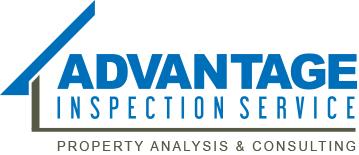All of us as consumers, at one time or another find ourselves being hyper-focused on finding the very best company for the job. This happens quite often when looking for a home inspector to hire, after all a home purchase is a critical decision. Here are the steps to take and the things to consider when choosing the best home inspector.
- Experience is Key – No surprise here. Experience is paramount when it comes to a home inspector. Look for someone that has completed at minimum 250 home inspections and 1,000 is vastly better. There is an industry certification called the Certified Master Inspector (CMI) that requires at least 1,000 home inspections before becoming a member. Look for this credential or ask how many inspections your inspector has completed.
- Financial Backing – Some states, like Arizona, require that a licensed home inspector carry errors & omissions insurance or a bond for client protection. A bond is generally significantly inferior to insurance, so our suggestion is to insist that your inspector carry errors & omissions and general liability insurance.
- Warranties – Some home inspection companies offer critical warranties with the inspection. Most often this is included free and can cover expensive hidden defects like: structural and mechanical system problems, termite infestation, underground main water and sewer line failures, undetected mold and even roof leak repairs. You should demand these important free coverage’s from your home inspector.
- Quality Reporting – Home inspection reports can vary greatly with regard to readability. Reading technical information is challenging enough so make sure you will be getting a report that is understandable. Without a quality report, you will find it difficult to determine which areas to focus on and your experience will be inadequate.
- Company Longevity – Most home inspectors are individuals having one-person operations without support or backing of any kind. It is very easy for them to disappear when trouble arises. Look for the long established operations if you want to reduce risk.
- Reviews – Checking out company reviews is a good idea especially when you see a rating of 4 out of 5 or more and the number of reviews total over 100. You want to avoid companies with low ratings and a low number of reviews. Also keep in mind that all long established companies with experience doing a significant number of inspections have some negative reviews. Some people complain about things that were noted in the inspection report, hidden from sight and problems that develop after the inspection. Also, the latest trend is to see the home seller to complain. The seller often lashes out because they are angry that the home inspector discovered and reported on problems at the home. Be sure to discount the negative seller reviews and read through the review content and company owner response.
- Websites – Be discerning when it comes to home inspector websites. Some terrible home inspectors have very nice looking websites and some outstanding inspectors have poor quality websites. The website has very little to do with inspector quality so dig deeper looking for the critical items mentioned above.
Two final important factors involve timing and price. The best home inspectors will be extremely busy during the peak times of the year, which tend to be March through July. It is a good sign if you have to wait an extra day or two to get an appointment. As it relates to price, unfortunately, we are all at risk of falling victim to a “bargain shopping” mentality. Trying to get a few dollars off on a home inspection is extremely foolish in the final analysis. You want the best value, that includes price but it also includes the considerations 1-6 above. If you save a little on the home inspection and have problems later, it will haunt you. Think of choosing a home inspector as being similar to choosing a plastic surgeon for your face, this is a time to choose very wisely.

